 March 2024 in “Biomedical reports”
March 2024 in “Biomedical reports” Isoflavone may help manage PCOS symptoms, but its effectiveness is uncertain.
 August 2023 in “International journal of reproduction, contraception, obstetrics and gynecology”
August 2023 in “International journal of reproduction, contraception, obstetrics and gynecology” Combining letrozole with metformin is the most effective treatment for inducing pregnancy in women with PCOS.
 January 2023 in “Open veterinary journal”
January 2023 in “Open veterinary journal” A cat developed skin problems from a certain brand of injected water pills, which went away after switching brands.
 January 2023 in “Nanomedicine & nanotechnology open access”
January 2023 in “Nanomedicine & nanotechnology open access” Microneedling is a promising, simple, and cost-effective treatment for hair loss that works well with other therapies.
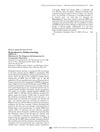 November 2022 in “Journal of the Endocrine Society”
November 2022 in “Journal of the Endocrine Society” Diagnosing osteoporosis in transgender people is challenging due to unclear guidelines and hormone treatment effects.
 November 2022 in “Journal of the Endocrine Society”
November 2022 in “Journal of the Endocrine Society” A woman with ectopic Cushing's syndrome and COVID-19 passed away despite treatment.
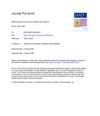 August 2020 in “Journal of The American Academy of Dermatology”
August 2020 in “Journal of The American Academy of Dermatology” Oral minoxidil can improve hair thickness and a comprehensive treatment approach leads to better alopecia outcomes.
 April 2019 in “Journal of The American Academy of Dermatology”
April 2019 in “Journal of The American Academy of Dermatology”  January 2019 in “The Pharma Innovation Journal”
January 2019 in “The Pharma Innovation Journal” The best mix for a hair loss treatment cream is 10% Sophora japonica tincture and 5% Serenoa repens extract.
 January 2018 in “Springer eBooks”
January 2018 in “Springer eBooks” Lasers are less favored for hair transplant surgery but show promise for hair growth in controlled trials.
 January 2017 in “Springer eBooks”
January 2017 in “Springer eBooks” The document explains various skin conditions and their treatments.
 August 2013 in “Pharmacy Today”
August 2013 in “Pharmacy Today” Viviscal may modestly improve hair loss in women without adverse effects.
 March 2012 in “Journal of Pediatric and Adolescent Gynecology”
March 2012 in “Journal of Pediatric and Adolescent Gynecology” Doctors vary in how they initially test for PCOS, but most agree on using oral contraceptives and lifestyle changes as first treatments.
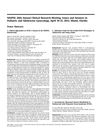 March 2012 in “Journal of Pediatric and Adolescent Gynecology”
March 2012 in “Journal of Pediatric and Adolescent Gynecology” Androgen levels do not determine the type of PCOS symptoms in young females.
 March 2012 in “Journal of Pediatric and Adolescent Gynecology”
March 2012 in “Journal of Pediatric and Adolescent Gynecology” Teens with PCOS have a higher risk of type 2 diabetes and need regular glucose checks.
 July 2002 in “JOGC/Journal of obstetrics and gynaecology Canada”
July 2002 in “JOGC/Journal of obstetrics and gynaecology Canada” Birth control pills help treat acne, especially when caused by excess male hormones, and are safe to use with antibiotics.
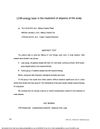 December 1997 in “Proceedings of SPIE, the International Society for Optical Engineering/Proceedings of SPIE”
December 1997 in “Proceedings of SPIE, the International Society for Optical Engineering/Proceedings of SPIE” Low-energy laser therapy can improve scalp alopecia treatment when combined with classical methods.
 September 1997 in “JEADV. Journal of the European Academy of Dermatology and Venereology/Journal of the European Academy of Dermatology and Venereology”
September 1997 in “JEADV. Journal of the European Academy of Dermatology and Venereology/Journal of the European Academy of Dermatology and Venereology” Anti-IL-1 treatments might help with certain types of hair loss in people with high inflammation.
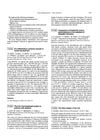 September 1997 in “JEADV. Journal of the European Academy of Dermatology and Venereology/Journal of the European Academy of Dermatology and Venereology”
September 1997 in “JEADV. Journal of the European Academy of Dermatology and Venereology/Journal of the European Academy of Dermatology and Venereology” Alopecia patients have a less active liver monoxygenase system, which can be treated with photochemotherapy and system inducers.
 August 1994 in “Journal of dermatological science”
August 1994 in “Journal of dermatological science” Different substances affect hair and skin cell growth in various ways.
 August 1994 in “Journal of dermatological science”
August 1994 in “Journal of dermatological science” Different substances affect hair and skin cell growth in various ways, with some promoting and others inhibiting cell proliferation.
 August 1994 in “Journal of dermatological science”
August 1994 in “Journal of dermatological science” Cyclosporin A and FK506 can start new hair growth in mice, but ascomycin and rapamycin cannot.

A woman successfully sued for not being told about a medication's side effects, emphasizing doctors' duty to inform patients.
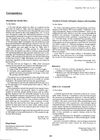 September 1987 in “International Journal of Dermatology”
September 1987 in “International Journal of Dermatology” Dr. Baral observed that applying minoxidil can cause hair to grow in areas other than where it was applied.
 June 2018 in “Actas Dermo-Sifiliográficas”
June 2018 in “Actas Dermo-Sifiliográficas” New treatments improve hair loss solutions for different age groups and genders.
 November 2015 in “Springer eBooks”
November 2015 in “Springer eBooks” Hair loss treated with minoxidil, finasteride, laser/light, hair transplant, and scalp prostheses; more research needed for skin of color.
 August 2012 in “Journal of Evidence-based Medicine”
August 2012 in “Journal of Evidence-based Medicine” Minoxidil helps with hair regrowth in women with androgenic alopecia.
 January 2007 in “The Year book of dermatology”
January 2007 in “The Year book of dermatology” Finasteride with oral contraceptive improves hair loss in 62% of premenopausal women.
 2295 citations,
August 2012 in “The international journal of transgenderism/International journal of transgenderism”
2295 citations,
August 2012 in “The international journal of transgenderism/International journal of transgenderism” The guidelines recommend informed consent for gender-affirming treatments and stress the importance of personalized, culturally sensitive care for transgender individuals.





























